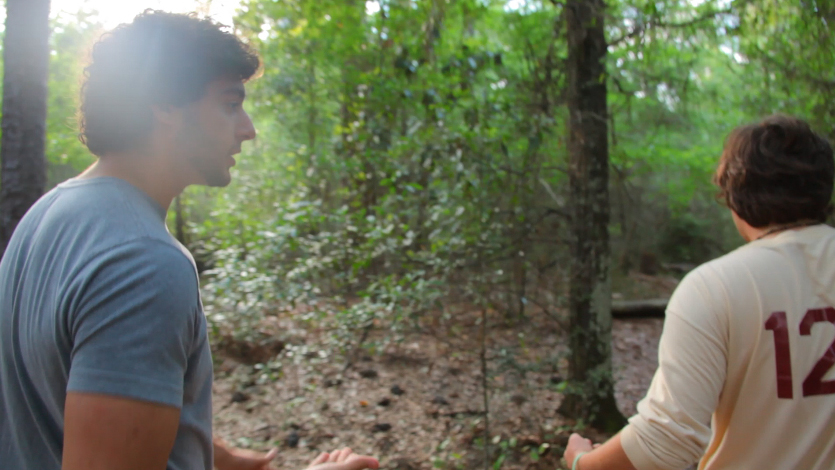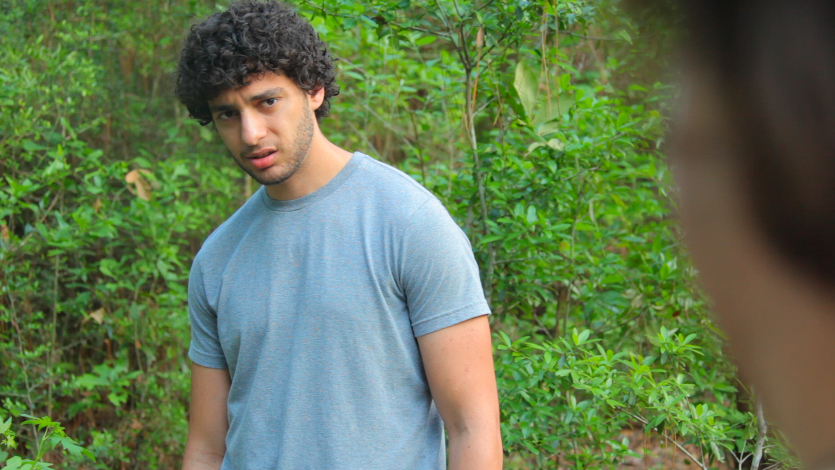
Eating like adults.
 When I start thinking about health, food and culture, I have a hard time stopping. Within minutes of posting about intermittent fasting, I had to go ahead and start a draft of this entry. There will be some anger.
Most of my acquaintances are maintained on a fairly transient basis. I keep very few close friends, and outside of that small sphere I often go weeks or months without seeing many other people. Given these circumstances, my dramatic weight loss last summer surprised a lot of people when they saw me again in the fall. The inevitable question came often: "how did you do it?" And they still come often. The questions have come for so long by now that my response is barely more than a grunt and an email containing a link to Mark's Daily Apple.
When I start thinking about health, food and culture, I have a hard time stopping. Within minutes of posting about intermittent fasting, I had to go ahead and start a draft of this entry. There will be some anger.
Most of my acquaintances are maintained on a fairly transient basis. I keep very few close friends, and outside of that small sphere I often go weeks or months without seeing many other people. Given these circumstances, my dramatic weight loss last summer surprised a lot of people when they saw me again in the fall. The inevitable question came often: "how did you do it?" And they still come often. The questions have come for so long by now that my response is barely more than a grunt and an email containing a link to Mark's Daily Apple.
Americans' general lack of culture-wide health consciousness is revealed in the way that people almost always follow the same script with the questions they ask. And it drives me batty. Everyone is still influenced by what "authoritative" sources have told us about low-fat and heart disease, but this leads to worry and confusion when confronted by the success seen in high-fat diets like Atkins or the Primal Blueprint/paleo lifestyle.
For the latter half of the twentieth century to the present, Americans have been steadily gaining weight and making concerted efforts to lose it. And, in our defense, our culture does not help this pursuit. Our entire system of food business, subsidized grain crops, additives, long-term shipping and storage of produce, factory farms, processed foods and the fructose industry all work in concert to create an environment which lends itself much more easily to an unhealthy population than a healthy one. The icing on the cake is the misinformation that, for forty years, has dominated weight loss and nutrition advisement.
Medical science, historically, evolves and changes over time as new research finds the flaws in old research and the accepted standards are amended accordingly. In the 1970s, the research surrounding weight control and heart disease was latched onto by the government and incorporated it into the recommendations on what US citizens should and shouldn't be eating. This occurred at the same time as the creation of farm subsidies and the corn and soy industries. Matters of health were made into matters of business and government policies. Today, far too many doctors still operate off of their med school training from thirty years ago, or longer, while "nutritionists" speak from the same tired script as the docs.
And this is why I grow so angry with the people with whom I come into contact. The food pyramid was tried, and it failed. Low-fat diets were tested for forty years and also failed in their turn. But the morbidly obese, still excusing themselves as "big boned" and "genetically disadvantaged," like the mouth-breathing groupthinkers they too often tend to be, stubbornly cling to the exhausted notion that "heart healthy whole grains" and "low fat" variations on pizza and snack foods are the route to good health and fitness.
In the age of the internet, if you truly care about how look, feel or eat, you have no excuse to be misinformed. When you are still quoting research from forty or fifty years ago and claiming authority on the subject of weight loss, don't be offended when I laugh in your face. To discredit my experience is disrespectful. To deny science is ignorance.
But above all, don't ask for me to waste time explaining my lifestyle to you if your response is going to be "I could never do that."
Hmm. One expresses their desire for a change, but simultaneously proclaims their weakness and pre-accepted inability to execute said change. That's a self-fulfilling prophecy right there.
Think of it this way, and perhaps you will understand my lack of patience. There is a group of people who allow emotion and the pleasure of the moment to dictate their choices. They like sweet things and fun foods sold in brightly-colored packages. In the grand old American tradition of "if some is good, then more is better," they desire their sweeties in large amounts, and they get complain when they can't get them.
In almost any other context, we would be talking about children.
However, in the realm of lifestyle and nutrition, this mentality is an accurate description of most adults. Despite their age and supposed maturity, too many adults are downright unwilling to accept the facts when confronted with evidence that our American food culture is a business which sells poor health in the long run.
Steady weight gain occurs from an unhealthy lifestyle. A short-term diet is a temporary fix. Long-term weight loss and weight maintenance requires an acceptance of these facts and permanent changes in lifestyle. Nothing exists in a vacuum.
We have every resource available to us, and there are people like me who are walking proof that a little bit of time spent researching health can yield amazing benefits in a relatively short amount of time.
If you are one of those people who complained of "those ten pounds" so long that they've had time to multiply into twenty, it is time to stop looking for easy fixes and annoying the rest of us with your repetitive complaints. It is your responsibility. Not your environment, not genetics, not your family history. It is your responsibility. And in the age of endless free resources on the internet, you have no excuse.
Diffused Light
My teammates and I shot our final project for our film practicum yesterday. We shot it on my 5D MkII and had a great time.
The picture quality out of my Canon 5D MkII never ceases to astound me. Despite its recently being eclipsed by the 5D and the new line of 1Ds, but it still stands as a revolutionary tool in the world of independent filmmaking. The stills below are taken from the footage as it came out of the camera.
We shot late in the afternoon, and between the low angle of the sun and the concurrent diffusion from the tree canopy at the late hour, the lighting we had to work with was absolutely gorgeous. We used no light modification whatsoever, and I love the way it looks.
Whenever I get tired or burned out in image-making, days like yesterday revive my creative spirit and make me very excited to have such a wonderful environment in which to work. It just makes me sad that the projector in our classroom will degrade the footage as much as it always does.
The month so far...
Since getting an iPhone for my birthday last October, I have been amazed by how much more I have been inclined to chronicle things I see every day. Using Instagram continues to be a great incentive to see creatively. I became burned out on photography last year, and have little inclination to lug my DSLR around with me unless I have a definite purpose for carrying it. But my phone is always in my pocket... This month has been marked by used books, new shoes, pretty skies and good food.
Autonomous cars and a lack of margins.
 This article was left over on my reading list from yesterday.
This article was left over on my reading list from yesterday.
At a 2009 technology conference, Brad Templeton of the Electronic Frontier Foundation lectured on the promise of autonomous vehicles; when asked by a member of the audience how a society that didn’t have to pay attention to the world would be affected in its perception and cognitive abilities, he responded: “I don’t think that’s a bug. I think it’s a feature.” After all, he said, we would be freed to read or be otherwise productive in the car. Of course, one might object that there are ways in which paying attention to the world is a “feature” and not a “bug”: surely, for one thing, there are things in the world worth paying attention to. [Link]
I don't have any real thoughts or analysis on this. It simply makes me sad that our culture's non-stop drive to work and make money for its own sake means that Mr. Templeton suggests that people would be "freed to read or be otherwise productive in the car."
If this is the wave of the future, I wish that it might be advertised in a different way. Such as: saying that consumers would be "freed to read or otherwise relax in the car." We tend to always try to squeeze extra work into the unoccupied periphery of our lives. We meed margins!
For myself, this my daily commute represents the only part of the day wherein I can let my mind rest a little bit, so I turn on an audiobook. At home, I try to turn off the computer at least an hour before I go to sleep, just to give my brain some time to relax and settle before I go to sleep. And the funny thing is that my productivity goes up when I allow myself some extra time to decompress.
Pointing the Finger II - A final thought.
![]() A couple of weeks ago, before the throes of a research paper derailed my unscheduled-yet-regular blogging, I spilled some thoughts about degraded communication. Instead of reiterating everything I wrote there, I will simply post a piece of the Arnheim quote which opened that entry:
A couple of weeks ago, before the throes of a research paper derailed my unscheduled-yet-regular blogging, I spilled some thoughts about degraded communication. Instead of reiterating everything I wrote there, I will simply post a piece of the Arnheim quote which opened that entry:
We must not forget that in the past the inability to transport immediate experience and to convey it to other made the use of language necessary and thus compelled the human mind to develop concepts. For in order to describe things one must draw the general from the specific; one must select, compare, think. When communication can be achieved by pointing with the finger, however, the mouth grows silent, the writing hand stops, and the mind shrinks.
Okay, that's pretty well established. Unless we consciously communicate our thoughts and impressions of life in a literate and descriptive manner, as was once the necessity, our capability to do it at all will diminish.
Considering the matter further, it struck me just how much that we as a culture have become accustomed to "pointing the finger."
Consider:
- Emoticons
- Microblogging
- Chatpspeak
- GIFs
- Memes













